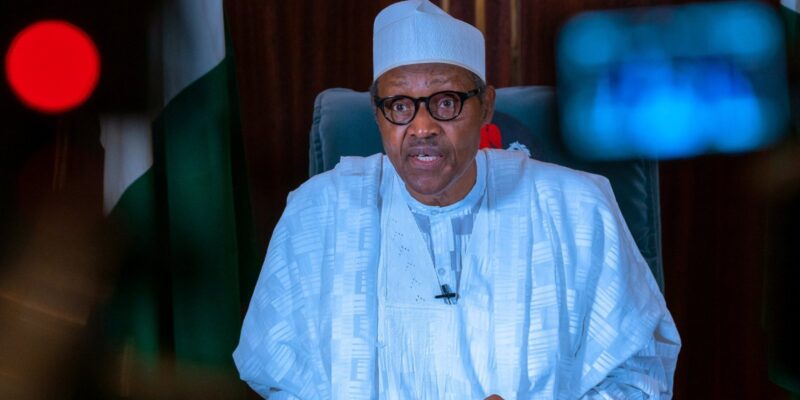…As striking tertiary institutions-based unions call off strike
Abiodun OBA
The request by Academic Staff Union of Universities (ASUU), to be paid six months salaries of the strike period and this is stalling the negotiations between the Federal Government and the lecturers.
Minister of Education, Mallam Adamu Adamu, stated this on Thursday while appearing on the weekly Ministerial Briefing organised by the Presidential Communication Team, at the Presidential Villa, Abuja.
Adamu explained that strike by the university-based unions came despite the trillions of naira expended on education by the present administration directly as well as by agencies such as TEFFUND and UBEC.
He explained that “all contentious issues between the government and ASUU had been settled except the quest for members’ salaries for the period of strike be paid, a demand that Buhari has flatly rejected.
“On the contrary, Unions in Tertiary Institutions in the country especially the Academic Staff union of Universities (ASUU) have been engaged in recurring and avoidable strikes that have crippled the university system.
“This is in spite of the huge investments of over N2.5 trillion in tertiary institutions in the last ten years from TETFUND alone. Common knowledge as it were, many Nigerians may not know that the federal government is paying the salaries of every staff in its tertiary institutions, academic and non-academic staff, while these institutions are also in full control of their Internally Generated Revenues (IGR).
“Just recently, we inaugurated a committee to renegotiate the 2009 agreement with the Academic Staff Union of Universities and related
unions in tertiary institutions. We are doing everything humanly possible to conclude on the negotiations.
“It is our hope that the outcome of the re-negotiations will bring lasting industrial peace to our campuses. In the main time, I am sure that the current efforts would yield the desired results and return our children back to school.
The Minister however, revealed that other striking tertiary institutions-based unions currently on strike will be going back to work within the next one week.
According to him, the other unions – Senior Staff Association of Nigerian University (SSANU), the Non-Academic Staff Union of Universities and Allied Institutions (NASU), the National Association of Academic Technologists (NAAT), Academic Staff Union Polytechnics (ASUP) and Colleges of Education Academic Staff Union (COEASU), have all agreed with the Federal Government on terms and should be calling their strike actions off within a week.
He disclosed that the discussions with the ASUU had also gone far but noted that there is a hitch in the discussions as the university lecturers are insisting on being paid the salaries for the six months, a demand the federal government is not willing to accept.
Adamu further claimed that the University Transparency and Accountability Solution (UTAS) payment system proposed by ASUU has outscored the Integrated Payroll and Personnel Information System (IPPIS) already in use by government and which the lecturers are kicking against.
He also said IPPIS has been updated to now accommodate payment of those on sabbatical.
“Just one thing that I was reminded even the current IPPIS has been made to accommodate sabbatical. I didn’t know this. Somebody just told me”, he said.
The lecturers had accused government of not considering the peculiarities of tertiary institutions in the IPPIS.
The Minister also said that it is the responsibility of ASUU to compensate students for the time wasted from the six-month strike, not the Federal Government.
Adamu suggested that the affected students should “take ASUU to court” to claim for damages incurred over strike period.
According to him, the federal government bears no liability to compensate millions of students grounded for six months over lost time, saying that if the students are determined to get compensated, they should take ASUU to court.
The Minister also said that the Buhari’s administration has expended a total of N6,003,947,848,237 in capital and recurrent expenditure in the education sector in the last seven years.
He said this was in addition to interventions from TETFund and UBEC amounting to N2.5 trillion and N553,134,967,498 respectively in capital investment.
“The government of President Muhammadu Buhari has expended a total of N6,003,947,848,237 in capital and recurrent expenditure in the education sector in the last seven years.
“This is in addition to interventions from TETFund and UBEC amounting to (N2.5Trillion) and (N553,134,967,498) respectively in capital investment. We must also note and appreciate the huge investments from States and the private sector at all levels of our educational system.
“We will continue to improve on the implementation of the Ministerial Strategic Plan, (MSP) all through to 2023 for the overall development of the education sector and the Nigerian Nation. We will continue to create the necessary enabling environment to attract more and more private sector investment. We shall hand over a better education sector than we met it”, he said.
The Minister also called for crackdown on perpetrators of examination malpractice, which he said has been discovered to be a cartel and called on the examiners to work closely with law enforcement agencies to “crackdown on examination malpractice”.
According to him, despite efforts to raise the integrity of the examination system in schools nationwide, the ministry still grapples with malpractice perpetrated both at the exams councils and school levels.
He lauded the Joint Admissions Matriculation Board for its efforts at stemming malpractice, saying more works need to be done.
On efforts of the administration to expand education and learning in the country, the Minister gave figures and facts about milestones covered in the last few years.
“Universities: At the inception of this Administration in 2015, Nigeria had 40 Federal Universities. The Buhari Administration has established additional nine universities, bringing the total number of Federal Universities to 49. Similarly, we met a total of 39 State Universities. We have licensed additional 16 Universities, bringing the total number of State Universities to 55. The total number of public universities (Federal and State) now stand at 104.
“Similarly, we have licensed a total of 50 Private universities more than any other administration has done in the history of Nigeria. As at 2014, the country had 49 private universities. The country now has 111 private universities. Put together, Nigeria now has Two Hundred and fifteen (215) universities.
“In spite of these laudable efforts at ensuring unfettered access to university education, the challenges posed by illegal universities, “Degree Mills” still persist. As I speak, the NUC has identified approximately 70 illegal universities in the country. We will not rest on our oars in cracking down on illegal universities in the country. (The full list is in the 2021 Annual Ministerial Press Briefing Text).
“Polytechnics and Allied Institutions – As at 2014, Nigeria had 24 Federal Polytechnics. The Buhari administration has established 12 more, bringing
to total, the number of federal polytechnics to 36. In the same vain, we had 41 State polytechnics as at 2014. Seven (7) have been added, bringing to total, the number of states’ polytechnics to 48. We had 7 private polytechnics as at 2014. This administration has licensed 41 private polytechnics, bringing the number of private polytechnics to 48.
“In terms of carrying capacity, the Federal Polytechnics had 60,800 as at 2014. Today, we have 63,700. The carrying capacity of State polytechnics stood at 52,480 in 2014. We have increased this to 60,880.
“Colleges of Education At the inception of this Administration, the country had 21 Federal Colleges of Education. We have established additional 6 Federal Colleges of Education in the last six years, bringing to total, the number of Federal Colleges of Education to 27. The process of establishing 9 more Colleges of Education has already commenced.
“We also inherited 46 State Colleges of Education in 2014. Between 2014 and now, we have 50 additional State Colleges of Education, bringing to total the number of State Colleges of Education in the country to 96. In the same vein, we met 48 private Colleges of Education when we came in. As I speak, we have a total of 120 private Colleges of Education.
“In terms of carrying capacity, we have improved the carrying capacity of Federal Colleges of Education from 39,350 in 2014 to 104,450 as at date. The carrying capacity of State Colleges of Education has moved from 153,490 in 2014 to 405,132. Put together, the carrying capacity of private and public Colleges of Education now stand at 509,582. I must add that capacity utilization in some Colleges of Education has been on the low side.
“The challenges of illegal Colleges of Education is as profound as that of illegal universities. We have also identified an alarming number of illegal Colleges of Education, totaling One Hundred and Twenty- Five, (125).
“The National Commission for Colleges of Education (NCCE) has written their proprietors to shut down within a specific time frame, after which the appropriate measures will be applied.
“I want to use this opportunity to thank all Nigerians, especially those that contributed to our efforts to see to the resolution of the present strike”, he said.








Comments